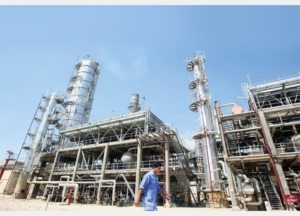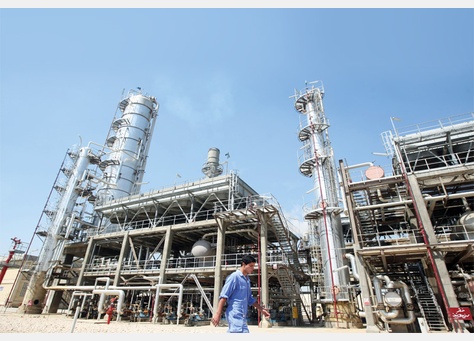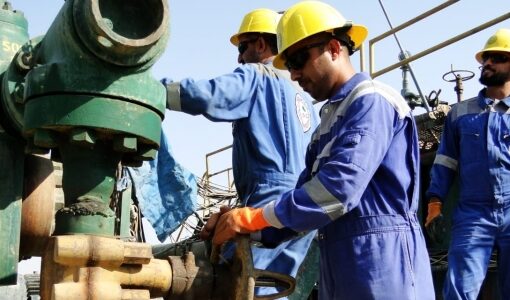
Iraq plans to focus on the oil and gas, downstream, and minerals value chains, and tourism and financial services to move the GDP growth rate by 6% annually in the next eight years. (Image for illustration only)
By: Martin Menachery
The government of Iraq is committed to implementing a stable macroeconomic framework driven by significant growth potential in the oil and gas sector as well as non-oil industries.
A potential leader in emerging markets, Iraq offers unlimited investment opportunities and requires over $30bn of foreign direct investment (FDI) per annum.
After three years under combat operations, the end of Iraq’s war encourages the country’s reconstruction and economic reformation. As a result of healthy foreign international reserves, limited restrictions on cross-border fund transfers as well as an attractive legal framework that provides greater protection and incentives for foreign investors, investments in the country is expected to generate the highest rate of returns. In 2018, governments from over 76 countries, global funds, organisations and investors pledged $30bn in loans and investment to rebuild Iraq.
Apart from FDI, primary opportunity areas for global companies also include technology upgrades and manufacturing process improvement across all industries. Most industries operate on obsolete, or old technologies as wars and earlier sanctions prevented access to the latest technologies. Therefore, Iraqi companies seek to partner with global companies to benefit from their best practices in manufacturing processes.
“As a national development plan, Iraq aims to boost the economy through privatisation and development of oil and gas as well as minerals along the value chain. The plan is to not only privatise existing state-owned enterprises but also support SMEs with tax holidays and financial incentives. All in all, FDI inflow is expected to help the Iraqi government to achieve the target within the next five years,” said Ali Mirmohammad, senior consultant and business development manager at Frost & Sullivan.
Mineral oil, natural gas and phosphate deposits are among the top natural resources in Iraq that call for huge investment opportunities along the value chain. Huge volumes of mineral reserves remain untapped. This provides enormous opportunities for excavation and extraction of minerals. Opportunities are thus significant for mineral extraction companies, equipment suppliers as well as downstream investors.
Lucrative prospects are likely present for private investors, especially in the sectors that are currently in dire need of re-building and development such as banking, minerals, renewable energies, telecommunications, landfills, e-Commerce, recycling, water and sanitation, food and tourism.
“Enabled by the prospect of greater stability and security, Iraq has listed a total of over 212 projects ready for investment across more than 10 sectors. Of these sectors, oil and refineries is the most promising sector for investors followed by industrial and manufacturing, infrastructure, health and education, energy and agriculture sector,” added Mirmohammad.
To attract foreign investors, the Iraqi government has offered a list of guarantees and privileges including tax holidays for 10 years (extendable to 15 years in some cases), the right of ownership and protection against seizure, or nationalisation of the investment project, the right to deal on the Iraq Stock Exchange (ISX), rent, or lease lands needed for the project for the term of the investment project, the right to repatriate the capital brought into Iraq and many more.
With a population of nearly 40 million, Iraq is also emerging as one of top consumer markets in the Middle East that primarily depends on imports. Frost & Sullivan’s recent study, ‘Iraq’s Untapped Opportunities; Path to Investment Boom’, highlights the growth potential in the following markets from 2018 to 2022 – grains, food and beverages (8-10% CAGR), pharmaceuticals (10-12% CAGR), beauty and personal care (8-10% CAGR), furniture and homewares (5-6% CAGR), footwear, textile and apparel (5-6% CAGR), medical devices (18-20% CAGR), consumer electronics (7-8% CAGR) and plastic products (9-10% CAGR).
Iraq plans to focus on the oil and gas value chain, downstream value chain, minerals value chain, and tourism and financial services to move the GDP growth rate by 6% annually in the next eight years. Hence, with a population of over 39 million people as of 2018, Iraq remains an attractive consumer market with potential of over $40bn.
Source: Arabian Industry, 11 July 2018








Comment here